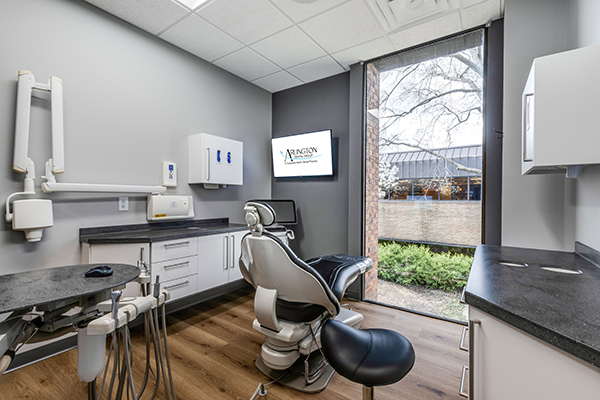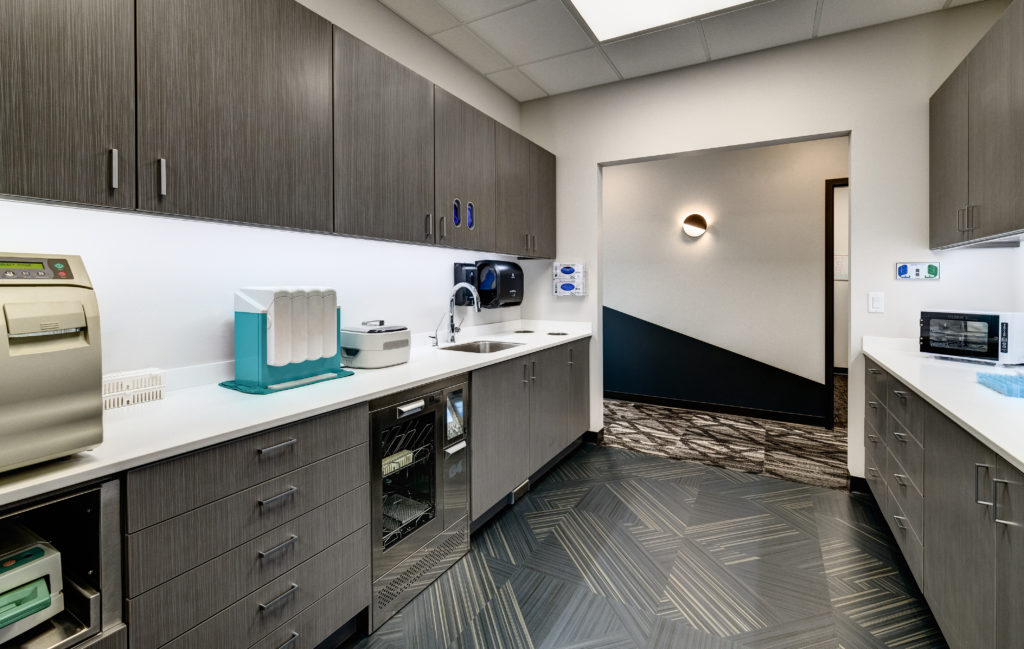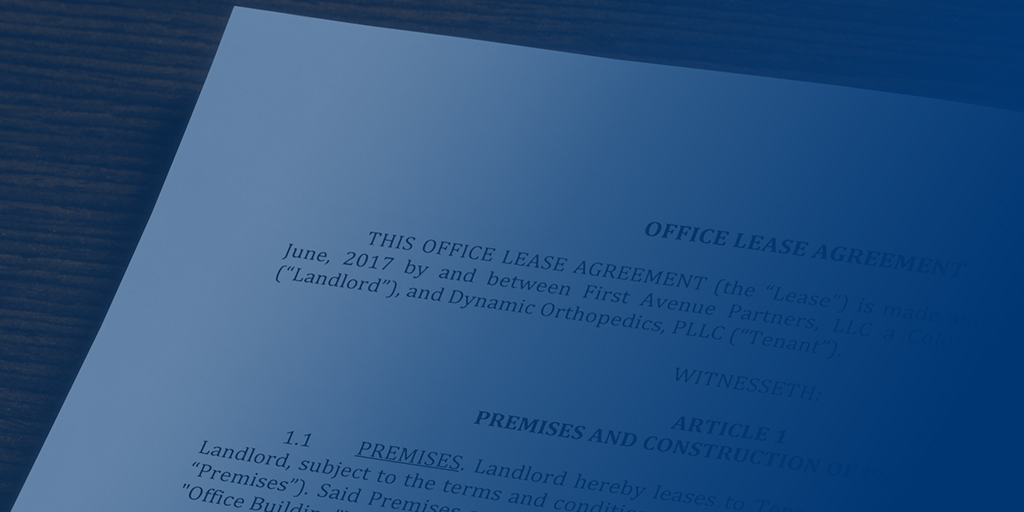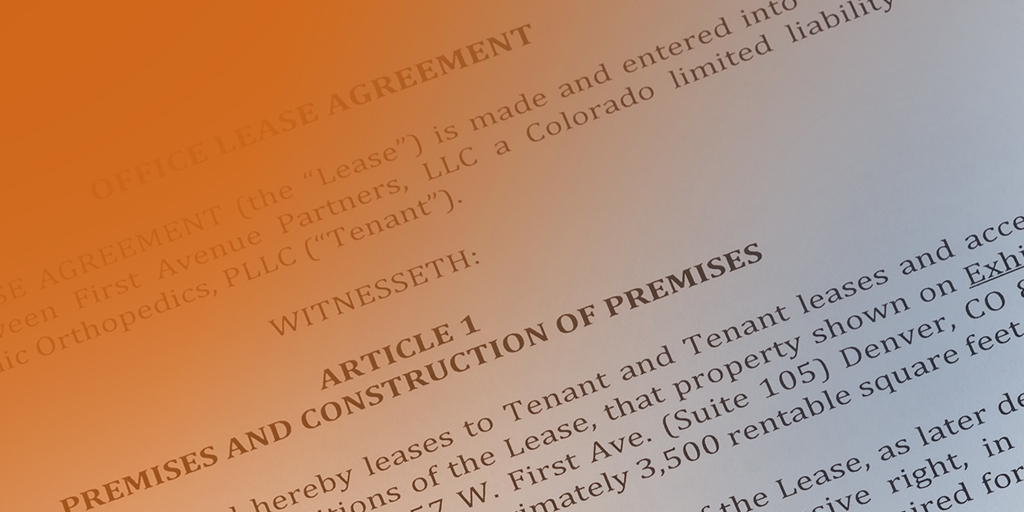The Condition of Your Medical Office Space
The last critical factor of this series that is often overlooked by healthcare providers in the attempt to save their practice money by paying lower rent is the condition of their medical office space.
The condition of a medical office space makes a large impact on the overall cost of a deal.
When was the building built or remodeled? When was the HVAC last replaced? Is there sufficient electrical service for your equipment and technology? Is the building up to code and ADA accessible? Has there been any recent roof leaks? What type of deferred maintenance is present? And the list goes on…
Any of these items could cost you thousands of dollars to remedy over the term of your tenancy. Whether the issue needs to be fixed on the front end, like installing new HVAC, or something else that adds up over time, like poor-energy efficiency, the extra costs of leasing an older space or poorly maintained property need to be carefully considered.
Paying a higher rent upfront to avoid the above costs should be thoroughly evaluated prior to committing to a new lease in order to determine potential expenses and liabilities over the long-run. You can make the most informed decision for your practice when all the cards are on the table and no stone is left unturned.
There is a significant amount of money on the line when it comes to your healthcare practice real estate, and the vast majority of it is negotiable. It is vitally important to consider more than just lease rate and length of the term when evaluating your real estate options. Often times, landlords are only willing to move slightly off the lease rate when they would be willing to give significantly more concessions. The best strategy to achieve maximum profitability with your commercial real estate needs is to have professional representation with every transaction you are involved in. One of the best parts is that as a tenant, your representation does not cost you anything as landlords and sellers pay real estate fees in commercial real estate; just like in residential real estate.
Beyond having professional representation, it is equally important you have an agent on your side who only works with healthcare tenants and buyers and does not represent landlords or sellers. You want someone who understands and specializes in healthcare and is only on your side of the transaction. An agent who understands the nuances of healthcare real estate can easily make a six-figure impact in your real estate negotiations. Additionally, having an expert agent who doesn’t have a single listing improves your ability to have a no conflicts of interest approach. Your agent’s specific strategy for maximizing your practices profitability through real estate should take all the guess-work out of the process and bring peace of mind in every commercial real estate transaction you are involved in.
To learn more about why it is so important to have expert representation, click the button below.
To receive a free, no-obligation evaluation of your current terms and/or available options, click the button below. When you do, complete the simple form and an expert broker will contact you right away.

CARR Healthcare is the nation’s leading provider of commercial real estate services for healthcare tenants and buyers. Every year, thousands of healthcare practices trust CARR to achieve the most favorable terms on their lease and purchase negotiations. CARR’s team of experts assist with start-ups, lease renewals, expansions, relocations, additional offices, purchases, and practice transitions. Healthcare practices choose CARR to save them a substantial amount of time and money; while ensuring their interests are always first. carrusoldtheme.wpengine.com








 We are also providing
We are also providing 






 Now let’s dig in further. If you own a practice, you most likely have an office. That office carries with it many expenses: the most obvious is the monthly rent or mortgage. With an office space also comes staff and payroll as well. These two items are not only needed to have a practice, but are also the two highest expenses for most practices. That being the case, only one of them is really negotiable. You may decide to cut staff, but when it comes to payroll, you either pay people what they are valued at, or they go somewhere that will pay them.
Now let’s dig in further. If you own a practice, you most likely have an office. That office carries with it many expenses: the most obvious is the monthly rent or mortgage. With an office space also comes staff and payroll as well. These two items are not only needed to have a practice, but are also the two highest expenses for most practices. That being the case, only one of them is really negotiable. You may decide to cut staff, but when it comes to payroll, you either pay people what they are valued at, or they go somewhere that will pay them. Let’s focus on a few of these concepts. If you start the transaction at the wrong time, you lose leverage and posture. If you don’t know the market, you are simply begging or bluffing. If you can’t handle conflict, you will most likely receive even more pressure and stress from the landlord or seller to make you uncomfortable and force you into making a decision that you will regret.
Let’s focus on a few of these concepts. If you start the transaction at the wrong time, you lose leverage and posture. If you don’t know the market, you are simply begging or bluffing. If you can’t handle conflict, you will most likely receive even more pressure and stress from the landlord or seller to make you uncomfortable and force you into making a decision that you will regret. If you are looking to maximize profitability, start by understanding how much is on the line with your lease or mortgage. Then, make the choice to hire representation. Select a commercial real estate broker that understands healthcare, only works for you as the tenant or buyer, can help you find the most options, has the strongest game plan, and who can take and absorb the conflict and confrontation that is inherent in every negotiation that involves a lot of money. In doing so you are positioning yourself to win.
If you are looking to maximize profitability, start by understanding how much is on the line with your lease or mortgage. Then, make the choice to hire representation. Select a commercial real estate broker that understands healthcare, only works for you as the tenant or buyer, can help you find the most options, has the strongest game plan, and who can take and absorb the conflict and confrontation that is inherent in every negotiation that involves a lot of money. In doing so you are positioning yourself to win.




